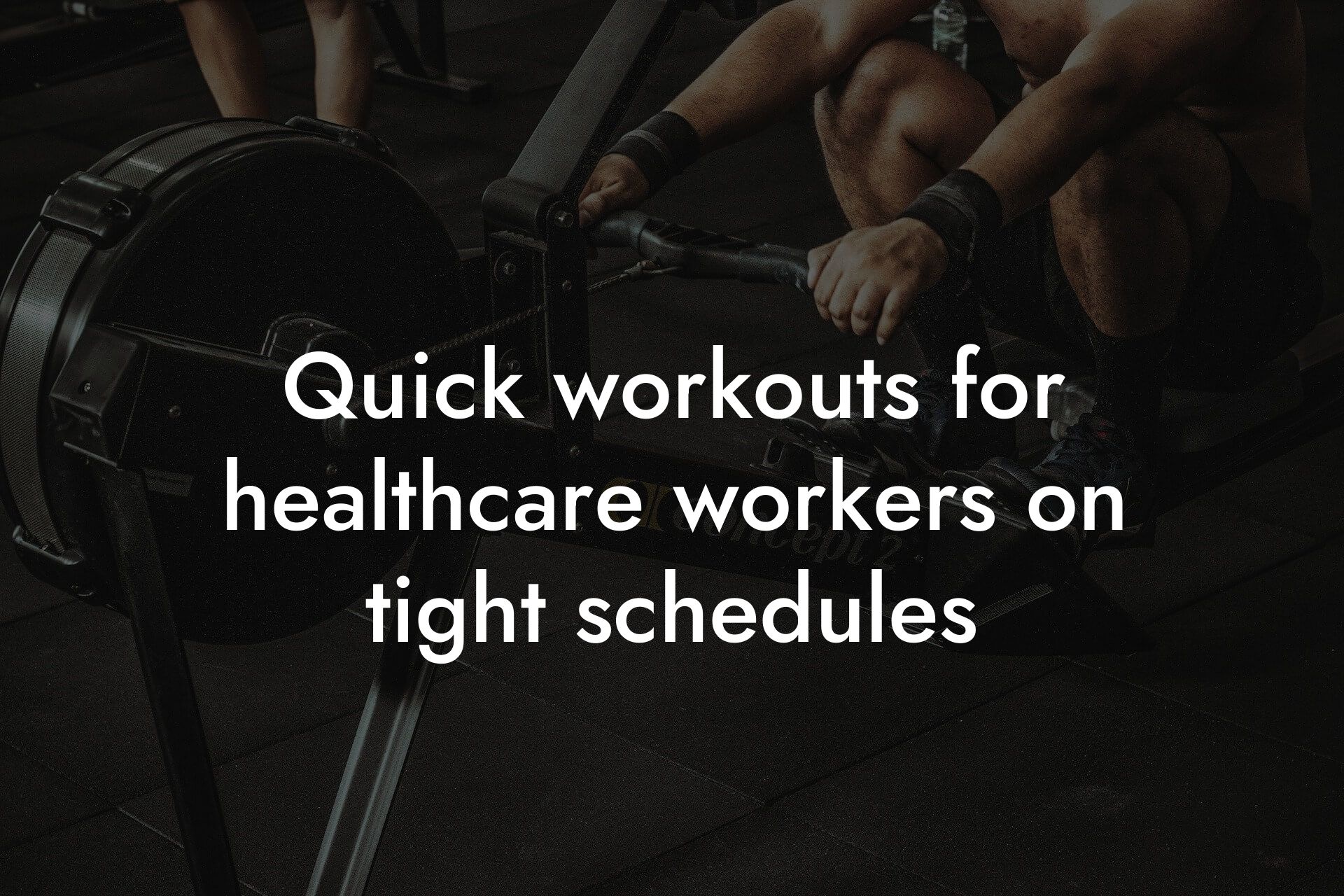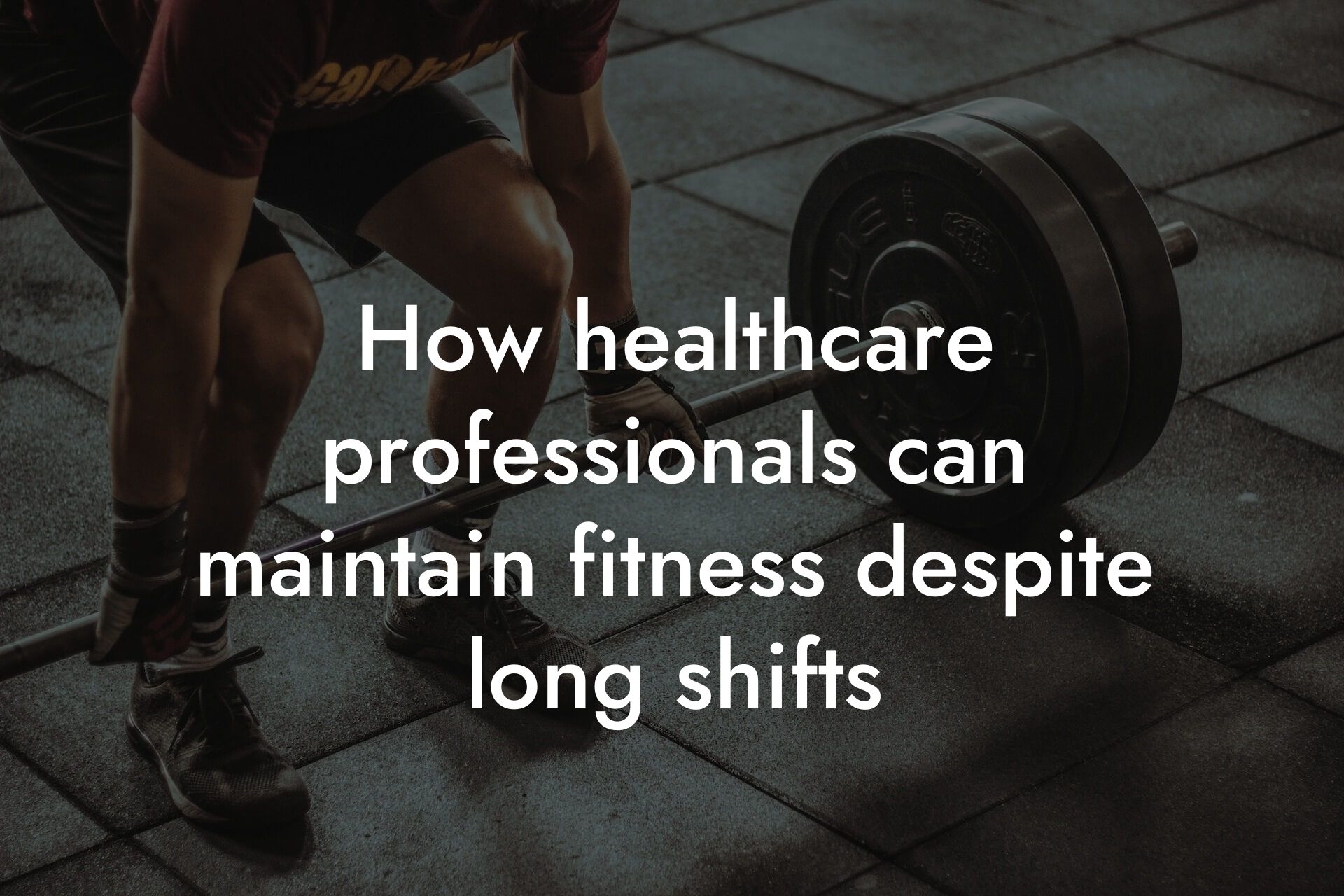As a healthcare professional, you understand the physical demands of your job. Long hours on your feet, heavy lifting, and constant movement can take a toll on your body, particularly your bones. Maintaining bone density is crucial to prevent injuries, reduce the risk of osteoporosis, and ensure a long and healthy career. In this article, we will explore the importance of bone density, the risks associated with physically demanding healthcare roles, and provide actionable tips to maintain strong bones.
Table of Contents
The Importance of Bone Density
Bone density refers to the measure of the amount of minerals, such as calcium and phosphorus, in your bones. Having strong bones is essential for supporting your body's structure, protecting internal organs, and facilitating movement. As you age, your bone density naturally decreases, but a sedentary lifestyle, poor nutrition, and certain medical conditions can accelerate this process. Low bone density can lead to osteoporosis, a condition characterized by brittle and fragile bones, increasing the risk of fractures and osteoporotic diseases.
Risks Associated with Physically Demanding Healthcare Roles
Healthcare professionals, particularly those in physically demanding roles, are at a higher risk of developing bone density issues. Factors contributing to this risk include:
- Prolonged periods of standing and walking, leading to repetitive strain on joints and bones
- Heavy lifting, bending, and twisting, which can cause micro-fractures and bone damage
- Limited time for exercise and self-care, making it challenging to prioritize bone health
- Exposure to chemicals and radiation, which can negatively impact bone health
Assessing Bone Density
Regular bone density assessments are crucial for identifying potential issues before they become severe. Dual-Energy X-ray Absorptiometry (DEXA) scans are a reliable and non-invasive method for measuring bone density. At Tano Performance Group, we use advanced DEXA technology to provide comprehensive body assessments, including bone density measurements, body fat percentage, and muscle mass. Our expert team will guide you through the results, providing personalized recommendations for improving your overall health and physique.
Nutrition for Bone Health
A well-balanced diet rich in essential nutrients is vital for maintaining strong bones. Focus on consuming:
- Calcium-rich foods: dairy products, leafy greens, and fortified plant-based milk
- Vitamin D-rich foods: fatty fish, egg yolks, and fortified cereals
- Vitamin K-rich foods: leafy greens, fermented foods, and fatty fish
- Omega-3 fatty acids: fatty fish, flaxseeds, and walnuts
- Adequate protein: lean meats, fish, eggs, dairy, and plant-based sources
Exercise for Bone Health
Regular exercise is essential for maintaining bone density. Incorporate the following exercises into your routine:
- Weight-bearing exercises: walking, running, jumping, and strength training
- Resistance exercises: squats, lunges, deadlifts, and leg press
- High-impact exercises: jumping rope, boxing, and dancing
- Flexibility and stretching exercises: yoga, Pilates, and tai chi
Lifestyle Changes for Bone Health
In addition to nutrition and exercise, make the following lifestyle changes to support bone health:
- Get enough sleep: aim for 7-8 hours of sleep per night
- Manage stress: practice stress-reducing techniques like meditation and deep breathing
- Limit caffeine and alcohol consumption: excessive intake can negatively impact bone health
- Avoid smoking: smoking is a significant risk factor for osteoporosis
Additional Tips for Healthcare Professionals
As a healthcare professional, you can take additional steps to maintain bone density:
- Take regular breaks to stretch and move during long shifts
- Prioritize self-care and schedule time for exercise and relaxation
- Consider wearing supportive shoes and orthotics to reduce strain on your joints
- Stay hydrated by drinking plenty of water throughout your shift
Maintaining bone density is crucial for healthcare professionals in physically demanding roles. By understanding the risks associated with your job, prioritizing nutrition and exercise, and making lifestyle changes, you can reduce the risk of bone density issues and ensure a long and healthy career. At Tano Performance Group, we are committed to helping you achieve your health and physique goals. Schedule a DEXA scan today and take the first step towards maintaining strong bones and a healthy body.
Frequently Asked Questions
What are the risks of bone loss in physically demanding healthcare roles?
Bone loss is a significant concern for healthcare professionals, particularly those in physically demanding roles. Prolonged periods of standing, heavy lifting, and repetitive movements can lead to bone density loss, increasing the risk of osteoporosis, fractures, and musculoskeletal disorders. In fact, studies have shown that healthcare workers are at a higher risk of developing osteoporosis due to their occupation.
Why is bone density important for healthcare professionals?
Bone density is crucial for healthcare professionals as it directly impacts their ability to perform their job duties safely and effectively. Maintaining healthy bone density helps prevent injuries, reduces the risk of fractures, and enables professionals to continue working without debilitating pain or disability.
What are the common causes of bone loss in healthcare professionals?
Bone loss in healthcare professionals can be attributed to a combination of factors, including a sedentary lifestyle, inadequate nutrition, hormonal changes, and repetitive strain injuries. Additionally, the physical demands of the job, such as heavy lifting, bending, and twisting, can also contribute to bone density loss.
How can I maintain bone density as a healthcare professional?
To maintain bone density, healthcare professionals should focus on a combination of proper nutrition, regular exercise, and stress management. A diet rich in calcium and vitamin D, along with regular weight-bearing and resistance exercises, can help promote bone health. Additionally, incorporating stress-reducing techniques, such as meditation and yoga, can help mitigate the negative effects of stress on bone density.
What are the best exercises for maintaining bone density?
Weight-bearing exercises, such as walking, running, and jumping, are excellent for maintaining bone density. Resistance exercises, such as weightlifting and bodyweight exercises, can also help strengthen bones. Additionally, high-impact exercises, like jumping rope and boxing, can be particularly effective in promoting bone density.
How often should I exercise to maintain bone density?
Aim to exercise at least 3-4 times per week, with a focus on weight-bearing and resistance exercises. It's essential to incorporate a mix of high-intensity and low-intensity exercises to avoid plateaus and prevent overtraining. Consult with a fitness professional or healthcare expert to develop a personalized exercise plan tailored to your needs and goals.
What are the best foods for maintaining bone density?
A diet rich in calcium and vitamin D is essential for maintaining bone density. Foods high in calcium include dairy products, leafy greens, and fortified plant-based milk. Vitamin D-rich foods include fatty fish, egg yolks, and fortified cereals. Additionally, foods high in omega-3 fatty acids, such as salmon and walnuts, can help reduce inflammation and promote bone health.
Can supplements help maintain bone density?
While supplements can be beneficial, it's essential to consult with a healthcare professional before adding any supplements to your regimen. Calcium and vitamin D supplements can be helpful, but it's crucial to ensure you're not overdoing it, as excessive supplementation can have negative effects. Additionally, consider incorporating natural supplements like omega-3 fatty acids and turmeric, which have anti-inflammatory properties that can promote bone health.
How can I reduce the risk of osteoporosis as a healthcare professional?
To reduce the risk of osteoporosis, focus on maintaining a healthy lifestyle, including a balanced diet, regular exercise, and stress management. Avoid smoking and excessive alcohol consumption, which can negatively impact bone density. Additionally, consider getting regular bone density scans to monitor your bone health and catch any potential issues early.
What are the signs and symptoms of bone loss in healthcare professionals?
Common signs and symptoms of bone loss in healthcare professionals include back pain, stooped posture, and fractures. If you're experiencing persistent pain or discomfort, it's essential to consult with a healthcare professional to rule out any underlying bone density issues.
Can I maintain bone density during menopause?
Yes, it's possible to maintain bone density during menopause. Hormonal changes during menopause can lead to bone loss, but a combination of proper nutrition, regular exercise, and stress management can help mitigate this risk. Consider incorporating menopause-specific exercises, such as pelvic floor exercises, to help maintain bone density.
How can I prioritize self-care as a healthcare professional?
Prioritizing self-care is essential for maintaining bone density and overall health. Make time for activities that bring you joy and help reduce stress, such as yoga, meditation, or reading. Additionally, prioritize sleep, aiming for 7-8 hours per night, and take regular breaks throughout the day to stretch and move your body.
What are the long-term consequences of bone loss in healthcare professionals?
The long-term consequences of bone loss in healthcare professionals can be severe, including chronic pain, disability, and decreased quality of life. In extreme cases, bone loss can lead to osteoporosis, which can increase the risk of fractures and other serious health complications.
Can I maintain bone density during pregnancy?
Yes, it's possible to maintain bone density during pregnancy. A healthy diet rich in calcium and vitamin D, along with regular exercise, can help promote bone health. However, it's essential to consult with a healthcare professional to develop a personalized exercise and nutrition plan that meets your unique needs during pregnancy.
How can I incorporate bone-healthy habits into my daily routine?
Incorporate bone-healthy habits into your daily routine by starting small. Begin by taking short walks during breaks, incorporating strength training exercises into your workout routine, and making healthy food choices. Gradually increase your physical activity and healthy habits over time to make them a sustainable part of your lifestyle.
What are the benefits of maintaining bone density as a healthcare professional?
Maintaining bone density as a healthcare professional can have numerous benefits, including reduced risk of injuries, improved job performance, and enhanced overall health and wellbeing. Additionally, maintaining bone density can help reduce the risk of chronic diseases, such as osteoporosis, and improve quality of life.
Can I maintain bone density as I age?
Yes, it's possible to maintain bone density as you age. While bone density naturally declines with age, a combination of proper nutrition, regular exercise, and stress management can help slow down this process. Additionally, consider incorporating age-specific exercises, such as balance and flexibility exercises, to help maintain bone density and reduce the risk of falls.
How can I get support for maintaining bone density as a healthcare professional?
Get support for maintaining bone density by consulting with a healthcare professional, fitness expert, or registered dietitian. They can help you develop a personalized plan tailored to your unique needs and goals. Additionally, consider joining a support group or online community of healthcare professionals focused on maintaining bone density and overall health.
What are the risks of ignoring bone loss in healthcare professionals?
Ignoring bone loss in healthcare professionals can have severe consequences, including chronic pain, disability, and decreased quality of life. Additionally, ignoring bone loss can lead to osteoporosis, which can increase the risk of fractures and other serious health complications.
How can I prioritize bone health as a healthcare professional?
Prioritize bone health by making it a part of your daily routine. Incorporate bone-healthy habits, such as regular exercise and healthy eating, into your daily routine. Additionally, prioritize self-care, stress management, and adequate sleep to help promote bone health.
What are the benefits of bone density scans for healthcare professionals?
Bone density scans can provide valuable insights into bone health, allowing healthcare professionals to identify potential issues early and take proactive steps to maintain bone density. Regular bone density scans can help monitor bone health, track progress, and make data-driven decisions about treatment and prevention.
Here are some related articles you might love...
- Quick workouts for healthcare workers on tight schedules
- Nutrition strategies for energy during long surgeries
- How healthcare professionals can maintain fitness despite long shifts
- Managing stress through physical fitness in the healthcare industry
- The connection between body composition and job performance in healthcare
- The impact of physical health on patient care
- How DEXA scans can benefit healthcare professionals
- How to balance night shifts with fitness goals
- The importance of fitness for preventing healthcare worker burnout
Zak Faulkner
Zak Faulkner is a leading authority in the realm of physical health and body composition analysis, with over 15 years of experience helping professionals optimise their fitness and well-being. As one the experts behind Tano Performance Group, Zak has dedicated his career to providing in-depth, science-backed insights that empower clients to elevate their physical performance and overall health.
With extensive knowledge of DEXA technology, Zak specializes in delivering comprehensive body assessments that offer precise data on body fat, muscle mass, bone density, and overall physique. His expertise enables individuals to make informed decisions and achieve their fitness goals with accuracy and confidence. Zak’s approach is rooted in a deep understanding of human physiology, combined with a passion for helping clients unlock their full potential through personalised strategies.
Over the years, Zak has earned a reputation for his commitment to excellence, precision, and client-focused service. His guidance is trusted by top professionals who demand the best when it comes to their health. Whether advising on fitness programs, nutritional strategies, or long-term wellness plans, Zak Faulkner’s insights are a valuable resource for anyone serious about taking their health and fitness to the next level.
At Tano Performance Group, Zak continues to lead our Content Team revolutionising how professionals approach their physical health, offering unparalleled expertise that drives real results.




